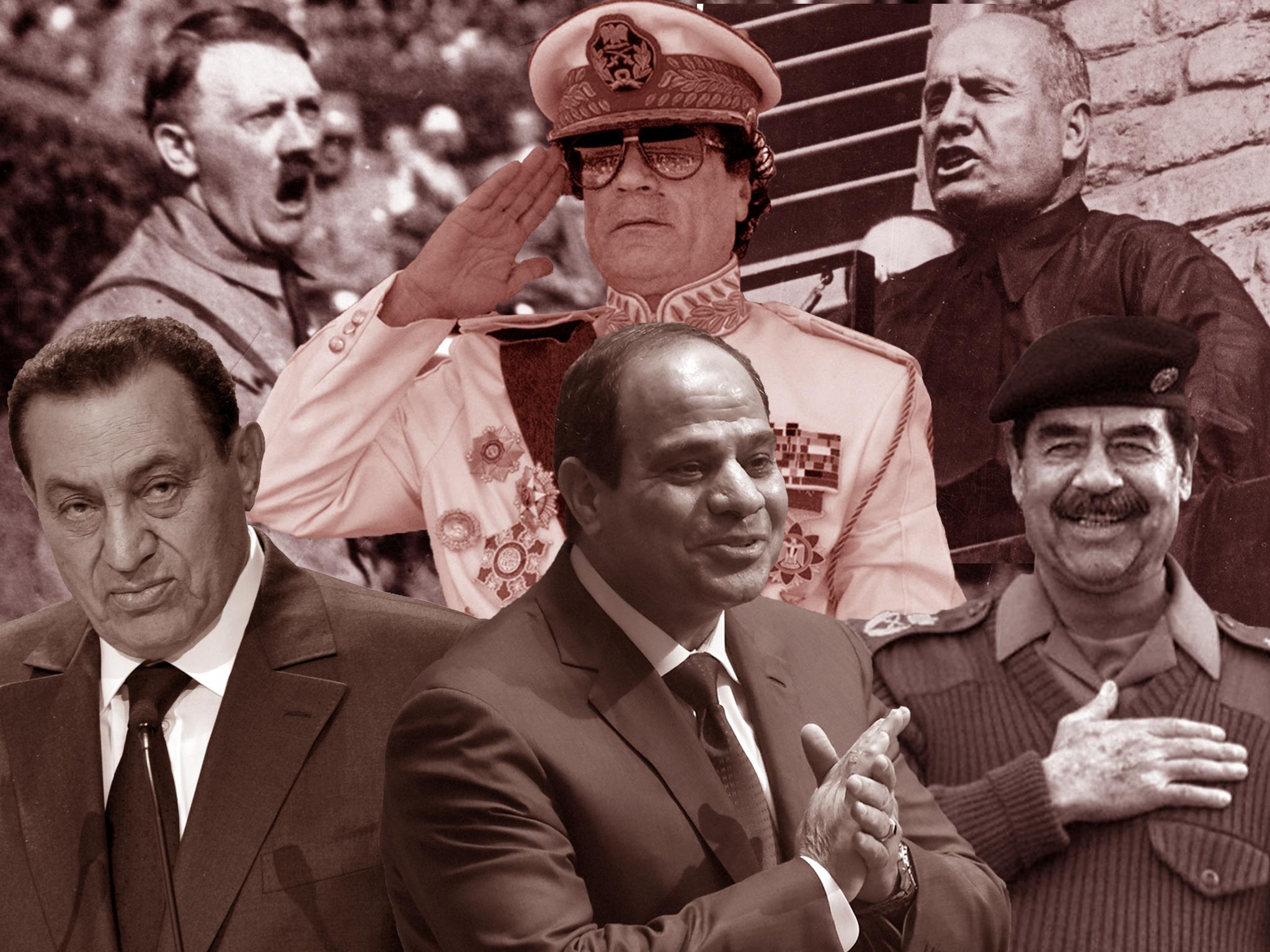How do dictators retain power, even when reviled and mocked by those they govern?
Modern-day despots wish to be blessed for their extravagant genius. But, Robert Fisk asks, what are we to make of this lunacy? And do they really believe their own hype?

Alaa Al-Aswany is a good guy. Romantic – far too romantic – about revolutions. And almost facile in his willingness to believe that generals in sun-shades who depose elected presidents can at first be trusted. But I’m not surprised that Egypt’s master-writer has now decided that dictatorship is a syndrome, a medical condition that can even be diagnosed – but not, I fear, cured. Aswany, I should add, is also a member of that profession which I find most terrifying: he is a dentist. A good man, then, to work away on the decaying teeth of the Egyptian revolution.
His latest work, The Dictatorship Syndrome – albeit less powerful than his novels (read The Yacoubian Building, if no other), which froth with veracity – is thus going to further enrage President Abdel Fattah al-Sisi of Egypt, who toppled Mohamed Morsi, a Muslim Brotherhood official, in 2013. Sisi was pretty fed up with Aswany after his previous book, The Republic, As If came out. “It’s about how a dictatorship looks ‘as if’ it is true,” he told me back in 2014. “With fair elections, [government] departments, and so on – ‘as if’.”
Not long after we met then, Aswany was banned from publishing his weekly column in Egypt and from appearing on official media. He remained a permanent critic of the Brotherhood but, asked in October 2018 if Sisi was the same as Honsi Mubarak – overthrown in the popular uprising of 2011 – he said that the Sisi regime was “worse because today’s [Sisi] dictatorship is a wounded tiger. A wounded tiger is much more dangerous. The tiger has confidence in itself, he knows he’s strong and therefore has no need to attack anyone. The wounded tiger will never forget that he has been wounded and that he risks receiving an even more serious wound. He attacks everyone.”
Subscribe to Independent Premium to bookmark this article
Want to bookmark your favourite articles and stories to read or reference later? Start your Independent Premium subscription today.
Join our commenting forum
Join thought-provoking conversations, follow other Independent readers and see their replies